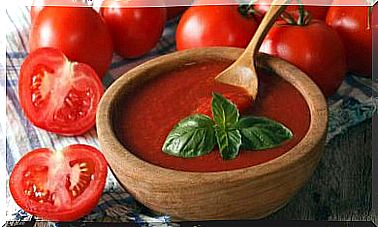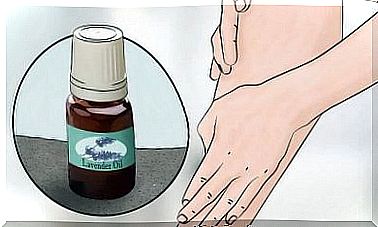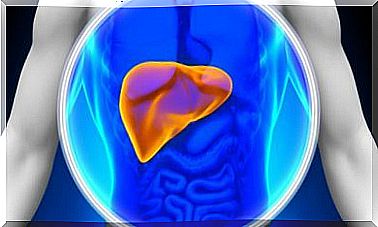The Right Diet For Irritable Bowel Syndrome
With the right diet, irritable bowel syndrome can be effectively controlled. It also helps relieve symptoms. Everything you need to know!

People with irritable bowel syndrome may feel too insecure about the possible symptoms to lead a normal life. Proper nutrition for irritable bowel syndrome helps prevent illness, discomfort and pain.
That’s why in this article we explain how you can improve this matter. Read on and find out more!
What is Irritable Bowel Syndrome?
Irritable bowel syndrome (IBS), or irritable bowel syndrome for short, is a chronic functional disorder of the digestive tract. The main symptoms are stomach pain or discomfort, a bloated stomach, and changed bowel habits (constipation or diarrhea).
This syndrome is the most commonly diagnosed gastrointestinal disorder and the second leading cause of inability to work (just after colds). Between 10% and 20% of the population will have irritable bowel symptoms for life. However, only 15% of those affected see a doctor.
Diet for irritable bowel syndrome

In irritable bowel syndrome, the diet must be individually adapted to the person affected. In general, the following guidelines apply:
- Moderate consumption of food with insoluble fiber (whole foods) so as not to add to the imbalance in the digestive tract.
- Increase your intake of soluble fiber (in the form of jelly, pectins, and mucilage). This can be done in the diet with the help of vegetables, which are good for digestive health.
- Avoid high-fat foods, citrus fruits (especially orange), and spinach. This reduces and neutralizes the laxative effect of the bile salts in the intestine.
- Reduce your intake of fructose (a form of simple sugar found mostly in fruits). Eat fruits that are low in sugar and high in pectin, such as an apple with its peel. One should not drink fruit juice or nectar.
- Avoid the consumption of sweeteners such as sorbitol, spicy foods or spices, carbon dioxide (in drinks), coffee and tea completely.
- Drink two liters of water a day. It is very important to ensure you are hydrated in case of diarrhea. It is recommended to drink water or mild teas such as linden blossom and lemon verbena (which have no laxative effects). Adequate hydration also helps with constipation.
FODMAP diet for irritable bowel syndrome
The FODMAP diet was developed by researchers at Monash University in Australia. FODMAP is the composition of the first letters of the English words that mean fermentable oligosaccharides, disaccharides, monosaccharides and polyols in German. All are short chain carbohydrates.
Therefore , the FODMAP diet contains little or no fructose, lactose, fructans, galactans, and polyols, which are found in the following foods:
- Fruits: like apple and pear
- Vegetables: such as onion, asparagus, and garlic
- Legumes: such as peas, soybeans, and lentils
- Grain: wheat and its products, rye and barley
- nuts
- Dairy products: such as milk, cheese, ice cream, and yogurt. Check compatibility.
- Artificial sweeteners: products that contain sorbitol (E420), mannitol (E421), isomalt (E953), maltitol (E965) and xylitol (E967), etc.
What is the relationship between irritable bowel syndrome and the FODMAP diet?

The fermentable oligosaccharides, disaccharides, monosaccharides and polyols are not 100% absorbed in the small intestine in some people .
As a result, these unabsorbed molecules continue their way to the large intestine, where they serve as food for the bacteria that are normally found there. There the bacteria ferment the FODMAPs and cause the aforementioned symptoms of irritable bowel syndrome.
Therefore , a low-FODMAP diet can help reduce the symptoms of irritable bowel syndrome and other inflammatory bowel diseases such as chronic colon inflammation or Crohn’s disease.
What do the studies say? Is there agreement?
Following the first Australian research in 2005, several studies were conducted to investigate the possible effects of the FODMAP diet on irritable bowel syndrome.
Many studies confirm the beneficial effects of this diet on IBS patients and point to the use of the FODMAP diet as a therapy. But other research and medical professionals question the concept and effectiveness of this diet as a treatment for irritable bowel syndrome.
This is because some studies have found that there is little evidence to support the hypothesis. In addition , the studies available so far have considerable limitations. In any case, it is essential that the FODMAP diet is formulated and monitored by a nutritionist.









